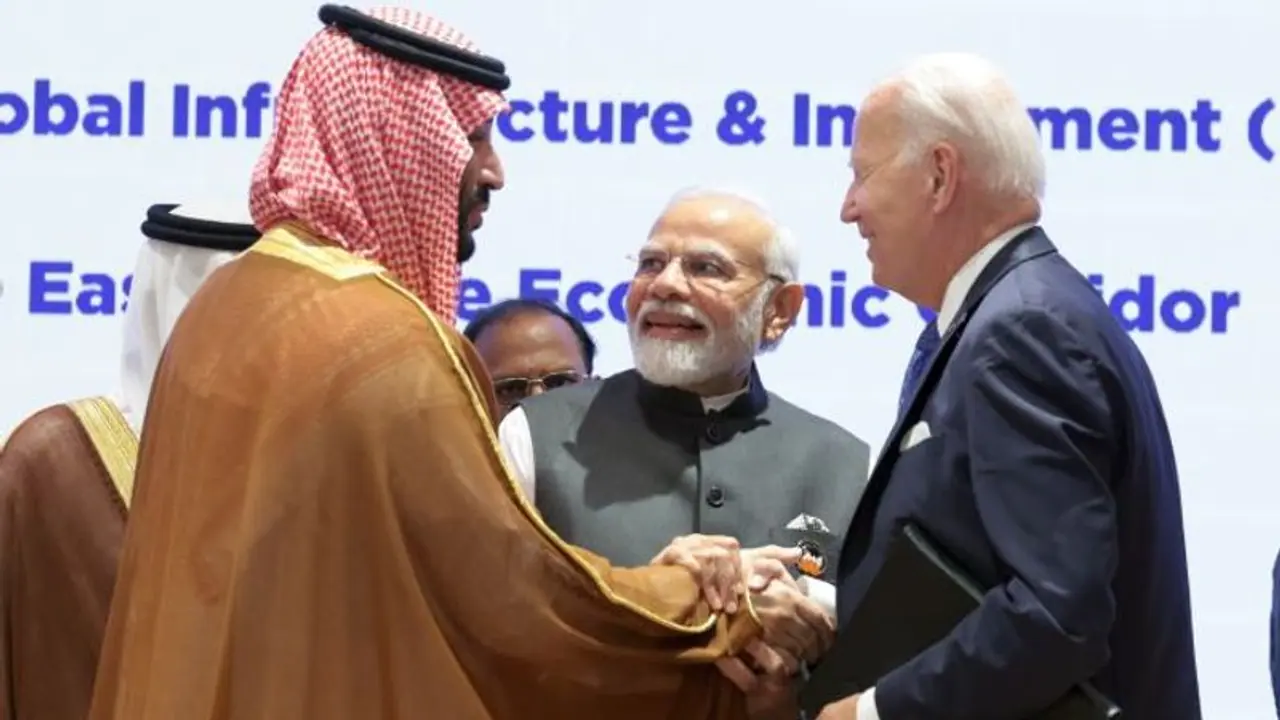The IMCC EC comprises two distinctive corridors. The East corridor will link India to West Asia and the Middle East, while the Northern corridor will establish a connection between West Asia/Middle East and Europe.
In a significant development, India, the United States, the United Arab Emirates, Saudi Arabia, France, Germany, Italy, and the European Union Commission have come together to ink a Memorandum of Understanding, laying the foundation for the establishment of the India-Middle East-Europe Economic Corridor (IMCC EC). This ambitious initiative is poised to usher in economic development by fostering robust connectivity and economic integration between Asia, West Asia/Middle East, and Europe.

The IMCC EC comprises two distinctive corridors. The East corridor will link India to West Asia and the Middle East, while the Northern corridor will establish a connection between West Asia/Middle East and Europe. One of the noteworthy components of this corridor is a railway line, the completion of which will furnish a dependable and cost-effective cross-border ship-to-rail transit network. This, in turn, will bolster the existing multi-modal transport routes and enhance the transshipment of goods and services from Southeast Asia through India to West Asia, the Middle East, and Europe.
Connectivity has long been a pivotal focus for India, rooted in its civilizational history, and aligns with the overarching theme of India's G20 Presidency, "One Earth, One Family, One Future." Nevertheless, India remains committed to principles of consultative, transparent, and participatory connectivity initiatives, preserving the sovereignty and territorial integrity of all nations involved. Key tenets such as financial responsibility, economic viability, adherence to ecological and environmental standards, and averting unsustainable debt burdens for recipient nations must guide these endeavors.
The strategic implications of this development are profound, as India will now be positioned squarely on the path of trade flows spanning from Southeast Asia to the Gulf, West Asia, and Europe. This newfound connectivity confers significant strategic and economic advantages, particularly for the logistics and transportation sector. It offers a faster and more cost-effective transit option compared to existing alternatives, thus invigorating trade and exports. Furthermore, it can evolve into a green corridor, aligning with India's sustainable growth objectives, reinforcing its regional standing, and facilitating equitable participation of Indian firms in infrastructure development. Beyond these economic gains, the corridor will bolster supply chains, stimulate job creation, and enhance trade facilitation and accessibility.
In essence, the India-Middle East-Europe Economic Corridor signifies a momentous stride towards heightened regional and global connectivity, poised to catalyze economic growth and strengthen India's position on the international stage.
